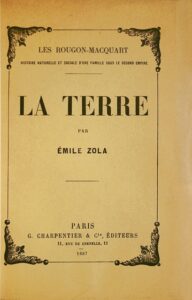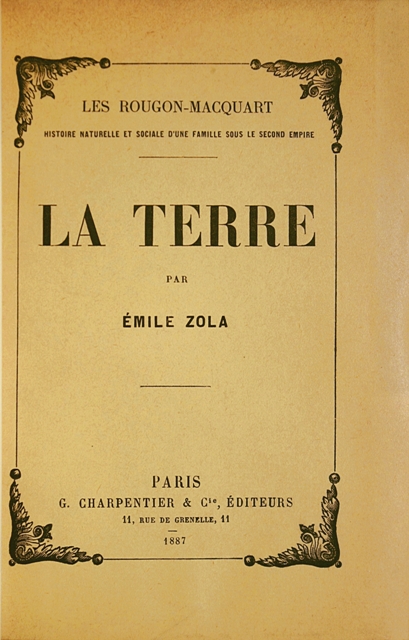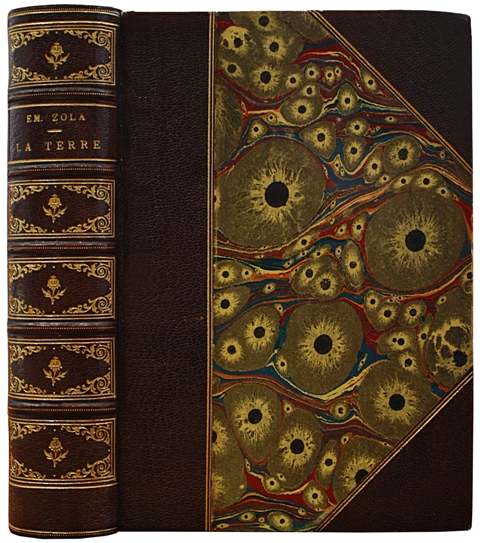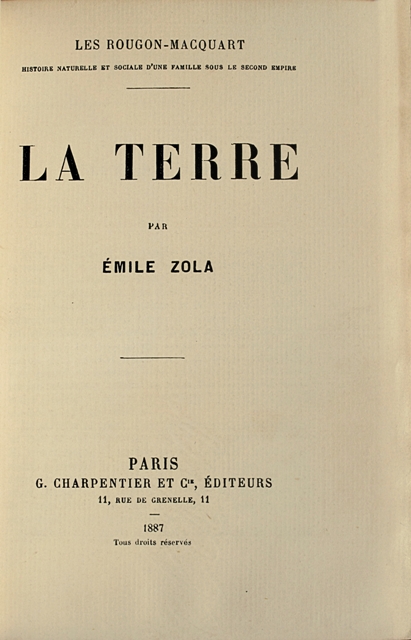ZOLA, Émile. La Terre. Les Rougon-Macquart. Histoire naturelle et sociale d’une famille sous le Second Empire. Paris, G. Charpentier et Cie, 1887.
8vo [182 x 122 mm] of (2) ll., 519 pp. Bound in brown quarter-morocco, spine ribbed and finely decorated, top edge gilt over untrimmed edges, yellow printed wrappers bound in. Contemporary binding.
First edition of this famous novel by Emile Zola, dedicated to the farming world. Vicaire, VII, 1212; Carteret, II, 486.
Precious copy n°57, one of 275 copies on Dutch paper, after 30 ones printed on Japanese vellum. “Published at 3fr. 50, 275 numbered copied on Dutch paper (7 fr.) were printed in addition.”
La Terre is the fifteenth volume of the Rougon-Macquart series, a vast literary saga written between 1871 and 1893. Published in 1887, this ferocious portrait of the rural world depicting Jean Macquart (son of Antoine Macquart and Joséphine Gévaudan), has raised important critics, even among the author’s disciples. Some thought that he libeled the peasants, and that the indecency, this time, went too far. The opponents of naturalism laid into him. Some backup, who he hadn’t hoped for, came from a group of young writers, who published a manifesto to deny Zola as their master. These so-called disciples were: J.-H. Rosny, Lucien Descaves, Paul Bonnetain, Paul Marguerite and Gustave Guiches.
“By portraying the peasantry’s habits, Zola tried hard to highlight only the turpitudes, the crimes and the basic abjection. Being thus possessed with the spirit of system, he could only but betray the truth. However, we might add that his evocation of the Beauce is particularly powerful.”
“I want to write the living poem of the land, but with no symbol, humanely. I mean that I want to depict first, down there, the love of the farmer for the land, the passion to get the more land possible, the passion to have much, because it is, to his eyes, the material proof of wealth, then rise to the love of mother earth, the land from which we get our entire being, our substance, our life; and where we end up back…” Emile Zola.
A beautiful wide-margined and untrimmed copy, bound at the time with its yellow printed wrappers.




